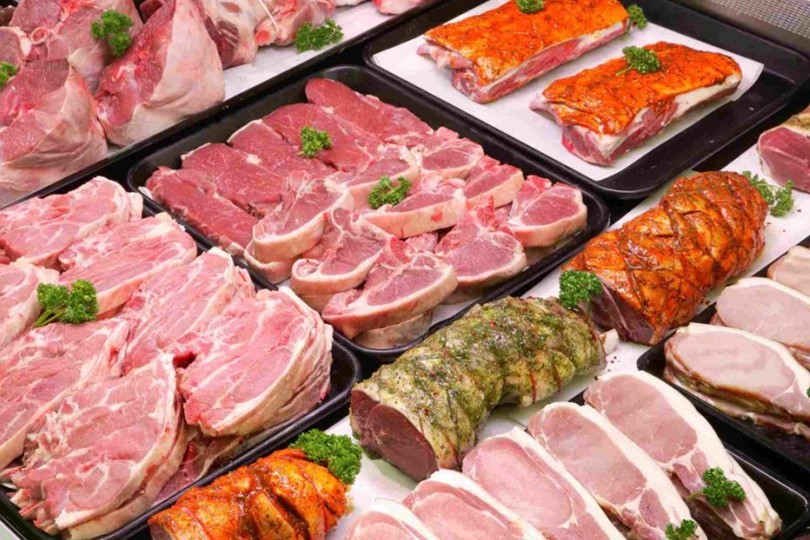On June 9, Tetra Pak announced a 700-million-yuan (about 98.8 million U.S. dollars) investment in Chinese “capital of milk” Hohhot to build its largest capping plant in the world. The plant will be Tetra Pak’s first in China to make caps and will mainly produce The Dream Cap after it is completed in early 2021, with a maximum production capacity of 10 billion pieces a year.
The Dream Cap is a resealable cap launched in 2017 to match its “Tetra Prisma” aseptic packaging for dairy products. China’s two biggest dairy producers Yili and Mengniu, are based in Inner Mongolia, and use the caps for their high-end dairy products Satine Organic Milk and Deluxe Milk. The Dream Cap became the fastest-growing product of Tetra Pak in 2019 [1].

Swedish food packaging giant Tetra Pak entered the Chinese market in 1979. It has set up production plants in Beijing, Kunshan of Jiangsu, and Hohhot of Inner Mongolia, with a total investment volume of RMB 4.46 billion (about 638 million U.S. dollars).
Trends toward packaging upgrading
In terms of market size, "Tetra Brik" is still Tetra Pak's mainstream packaging in the Chinese market, but its high-end packaging, including “Tetra Prisma," is experiencing the fastest growth. Enlarging the production of The Dream Cap in China will help Tetra meet consumer demands for higher quality and more convenient products.

According to Ipsos' market research in 2019, "on the go" has become the third most important drinking scenario in addition to "home" and "work and study places." Also, according to Tetra Pak Global Consumer Trends Survey, 38% of Chinese consumers drink beverages or eat food on the go, and 46% of Chinese consumers prefer convenient food and beverage packages. To be more specific, consumers usually need to quench thirst, fortify nutrition, replenish energy while walking, driving, or taking public transportation.
In addition, young consumers’ demand for novel products is prompting product development strategies toward more personalized and fashionable products. In 2018, Nielsen's "Interpretation of the Chinese Consumer Goods Market 2017" mentioned that the new generation of consumers pay more attention to emotional and interactive consumption experiences and products highlighting personalized packaging and products which can be consumed in multiple scenarios will be more attractive for them.
With the upgrading of consumption, an increasing number of consumers are willing to pay for better packaging. A report released by Ipsos last year showed that 94% of Chinese consumers are in favor of brands using state-of-the-art technologies to improve product convenience, and 79% of Chinese consumers (especially the high-income group) express a willingness to pay more for high-tech packaging that enhances product convenience.
The report also pointed out that 89% of consumers express interest in packaging applying new interactive technologies, such as scannable QR codes, which can be used to obtain product information (80%) or engage in interactive experiences (75%). 84% of consumers want to see products or ingredients through the packaging. 83% of consumers show a willingness to buy products with novel and unique packaging, for example, the product has an impressive name (63%), the packaging is a distinctive shape (54%), and the packaging has extraordinary colors (43%).
Challenges and opportunities are intertwined.
As packaging is becoming an increasingly prominent part of product appeal and differentiation, competition in this sector is intensifying. In the Chinese food and beverage packaging market, Tetra Pak's arch-rivals include foreign-funded companies such as Amcor Australia and SIG Combibloc, as well as local enterprises such as Greatview.
The Amco Group has provided packaging for multinational brands such as Unilever and Nestlé, and local brands such as Yili, Mengniu, and Bright Dairy. In the fiscal year 2018, the Group achieved revenues of more than US$13.4 billion (about RMB 94.6 billion) [2]. In light of the current green development trend, Amco is committed to achieving the full recyclability of the brand's consumer product packaging worldwide by 2025 [3].

Tetra Pak's China business is mainly liquid aseptic food packaging, especially milk. In this sector, although Tetra Pak is the go-to choice for large companies, some brands are beginning to choose other suppliers such as Greatview and SIG Combibloc, etc. [4].
The continuous entry of competitors has eroded Tetra Pak’s market share, but currently, the brand is still in a dominant position. According to data, Tetra Pak's global net sales revenue in 2019 reached 11.5 billion euros (about RMB 90 billion), sales in the Asia-Pacific region accounted for 35%, and sales in Greater China accounted for more than 10%. China is Tetra Pak's largest single market in the world [5].
The per capita consumption of dairy products in China was 35kg in 2019, and this figure is more than 100kg in European countries [6], showing there is still much room for growth. Additionally, the entire dairy industry is undergoing upgrading and transformation, and consumers are pursuing higher-quality products, higher value, and higher convenience. For example, high-end products such as organic, high protein, and functional dairy products have been popular in the past two years, which means more opportunities for packaging enterprises.
***Disclaimer: All images used in this article are from the internet.




 We provide full-scale global food market entry services (including product registration, ingredient review, regulatory consultation, customized training, market research, branding strategy). Please contact us to discuss how we can help you by
We provide full-scale global food market entry services (including product registration, ingredient review, regulatory consultation, customized training, market research, branding strategy). Please contact us to discuss how we can help you by 










